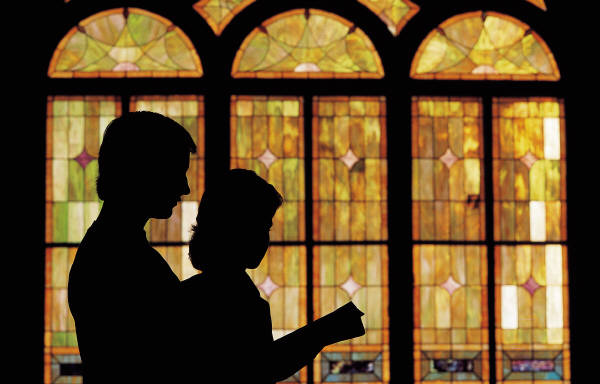How Libraries Are Adapting To Help Homeless Find Jobs, Health Services
NASHVILLE, Tenn. (AP) — Jeffery Bailey spends nearly every day at his public library.
It’s not just that he loves books. For the 43-year-old who sleeps in a tent outside a local church, the library is pretty much the only place he can go that won’t charge him to provide safety, warmth, useful services and entertainment.
Many public libraries discourage homeless people from hanging around all day. “It could be the way you dress, the way your hair is,” says Bailey, whose scruffy denim jacket could use a good wash.
But just as Bailey needs his library, the library needs him: In this digital age, many people who used to depend on libraries can find what they need online without leaving home. Menaced by budget cuts, many public libraries are effectively failing to justify their relevance, reducing their hours year after year.
At the same time, libraries are more important than ever to people who can’t otherwise get connected: Nearly two-thirds provide the only free computer and Internet access in their communities, according to the American Library Association.
In the 25 years since the ALA adopted a policy urging full access for poor and homeless library patrons, few have taken this mission as far as Nashville’s main downtown library, where Bailey arrives early each day, standing on an icy sidewalk in below-freezing temperatures with a half-dozen other people until the ornate bronze doors open.
Once inside, he goes directly to the third floor, where rows of computer terminals are quickly occupied by people carrying bags filled with their worldly possessions.
The library recently renovated this section with their homeless patrons in mind, ditching countless shelves of bound copies of “Popular Mechanics” and other periodicals that are now available electronically, and making way for 68 computers and more tables with ethernet connections and power outlets.
“They have a good book selection, a good music selection, movies,” Bailey said one morning after using Facebook to check in with his family. Without being able to stay at the library, “I’d probably do a lot of walking and trying to find a place to use the Internet.”
More than 70 percent of librarians surveyed several years ago said they weren’t aware of any libraries that successfully serve the poor, according to an ALA report.
“I think there are still a lot of punitive policies and a lot of barriers … rules about the size of baggage you can bring in or policies about odor or no-sleeping policies,” said librarian Julie Ann Winklestein, who co-wrote an ALA pamphlet to help librarians better serve people who have already been turned away by other…



